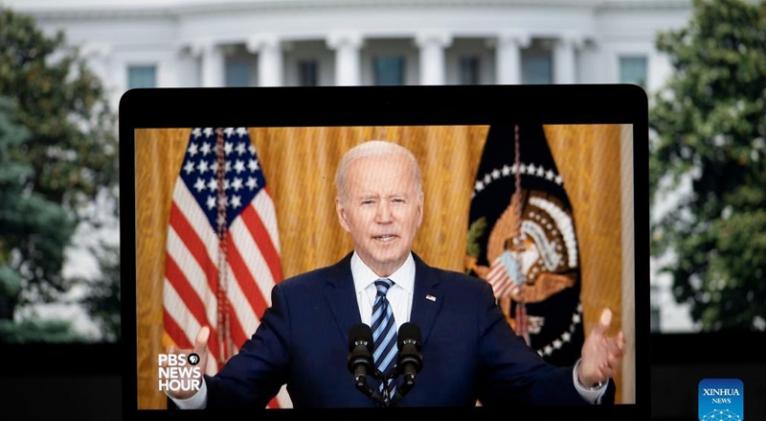US coercion of LatAm over Russia-Ukraine conflict is only asking for a new cold war
especiales

Some Western media outlets and think tanks have been arguing recently that Latin America's response to the conflict between Russia and Ukraine illustrates "the growing strategic challenge to the US from the survival and proliferation of populist authoritarian regimes in the Western Hemisphere." On the one hand, they overstate the "danger" of countries like Cuba, Venezuela, and Nicaragua. On the other hand, they highlight Russia's "disinformation campaign and the presence of Russia Today in Spanish-language media."
At the same time, the US is pushing the Organization of American States (OAS) to reach a consensus so that it can separate nations it sanctions, including Cuba, Venezuela, and Nicaragua, completely from other Latin American countries. It constantly urges its "allies" to openly take its side regarding the ongoing Russia-Ukraine conflicts.
Washington still thinks it can do whatever it wants in Latin America; that it can easily manipulate regional countries to follow its lead and sanction Russia. But the reality is that this isn't happening, no matter how hard Washington tries to rope in these countries. Regional powers, such as Brazil and Mexico, have refused to impose sanctions on Russia.
For most countries in the region, the Russia-Ukraine conflict is happening on the faraway European continent; thus, the issue is not closely related to their interests. They neither have the willingness nor the need to take a clear stance. Yet, the US insists on pressuring them to take a side, which is an action that doesn't conform to the norms of international law. By doing so, Washington is actually interfering in other countries' internal affairs and complicating the situation even more.
Latin American countries have suffered a lot from the US' long-arm jurisdiction for a long time. There is nothing wrong with them making decisions based on their own national interests. But the US doesn't agree with this. From its perspective, not supporting its position is the same as taking Russia's side, and for doing that, there is a price to pay. This is undoubtedly a hegemonic way of thinking that disrespects other nations' sovereignty.
In addition, some Latin American countries' "disobedience" on the issue of whether to impose economic sanctions on Russia demonstrates that they can withstand US pressure and are able to make independent decisions based on their own interests. This indicates that the US' control over Latin America is not as comprehensive as once before, especially when it comes to issues that concern the interests of Latin American nations. The non-Western camp that is subject to the leadership of the US and the West is not as monolithic as Washington thinks.
Some Western media reports highlighted that countries condemning the US and NATO as culprits of the Ukraine crisis are those sanctioned by the US, in an attempt to mislead public opinion into the whirlpool of taking sides.
They did so to continue to slander Russia's reasonable concerns against NATO's eastward expansion and to stress the "legitimacy" of the West's sanctions on Russia. The US has been hoping to take advantage of the Russia-Ukraine conflict to maximize its own interests. It aims to force some countries to take sides on the Ukraine issue and form a new post-Cold War international order in which countries of two camps are hostile to each other. The US wants to coerce countries to its side, cornering countries like China, Russia and Cuba into an isolated situation and forming a political and economic atmosphere that is even more unfavorable to nations sanctioned by the US.
The US is taking advantage of the basic principle that Latin American countries generally oppose foreign military presence, in order to arouse Latin America's fear of the Cuba missile crisis as well as the Cold War, hoping that they will rely more on the US in terms of their own defense. The US is also taking this opportunity to create an advantageous atmosphere for a larger US military presence in the region. It is calling for a new "cold war," trying to raise the curtain with sanctions against Russia, but this will eventually be recognized and rejected by all countries.














Add new comment